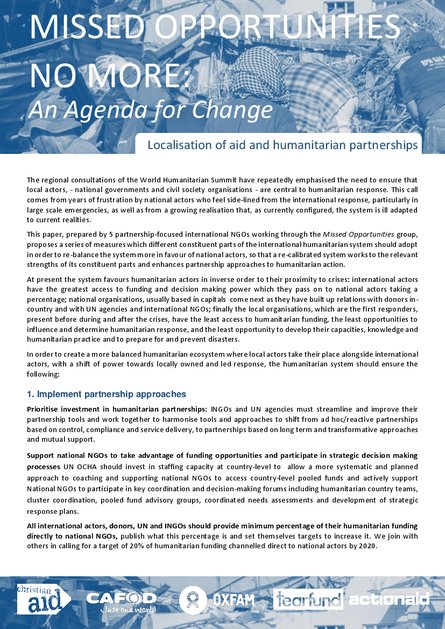
The regional consultations of the World Humanitarian Summit have repeatedly emphasised the need to ensure that local actors, - national governments and civil society organisations - are central to humanitarian response. This call comes from years of frustration by national actors who feel side-lined from the international response, particularly in large scale emergencies, as well as from a growing realisation that, as currently configured, the system is ill adapted to current realities.
This paper, prepared by 5 partnership-focused international NGOs working through the Missed Opportunities group, proposes a series of measures which different constituent parts of the international humanitarian system should adopt in order to re-balance the system more in favour of national actors, so that a re-calibrated system works to the relevant strengths of its constituent parts and enhances partnership approaches to humanitarian action.
At present the system favours humanitarian actors in inverse order to their proximity to crises: international actors have the greatest access to funding and decision making power which they pass on to national actors taking a percentage; national organisations, usually based in capitals come next as they have built up relations with donors incountry and with UN agencies and international NGOs; finally the local organisations, which are the first responders, present before during and after the crises, have the least access to humanitarian funding, the least opportunities to influence and determine humanitarian response, and the least opportunity to develop their capacities, knowledge and humanitarian practice and to prepare for and prevent disasters.